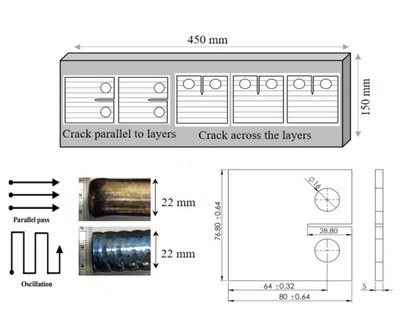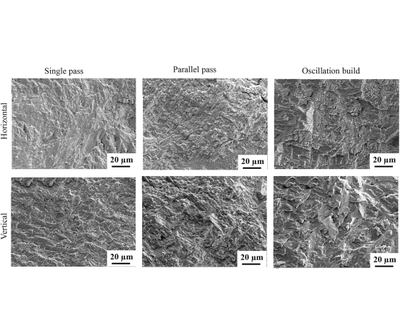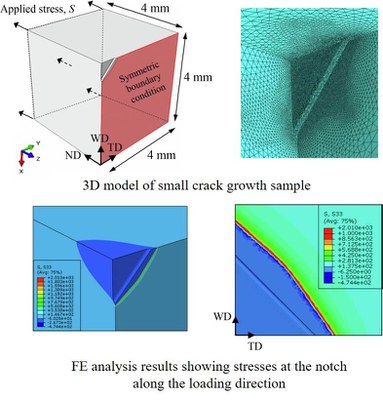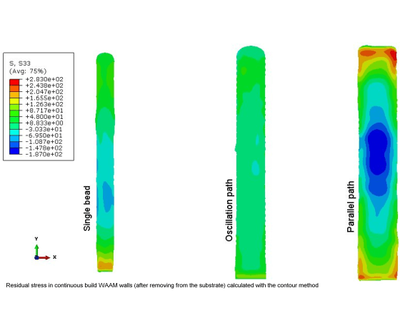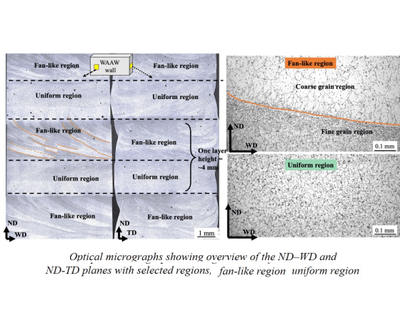Fatigue crack growth behaviour
For critical load carrying structures, the damage tolerance approach must be used especially in the aerospace structures. In this design approach, initial flaws/cracks are assumed to exist in a structural component, and fracture mechanics is applied to predict the crack propagation rate. For AM metals, residual stresses arising from the process must be considered. Tensile residual stress is undesirable as the applied stresses for most engineering structures are in tension in operation. Therefore, successful, robust and cost-effective implementation of the damage tolerance approach requires good understanding of process induced residual stress, and its effect on crack growth behaviour. This research topic has two main tasks: (1) applying non-destructive (diffraction techniques) and destructive methods (i.e. the contour method) to determine residual stress distribution and magnitude, in both as-built bulk materials and test samples (2) to study the effect of residual stress and microstructure on fatigue crack growth rate.
Information
- Research Area:Material Performance
- Publication date:01 February 2020
Activities
List of all current activities related to the work package
